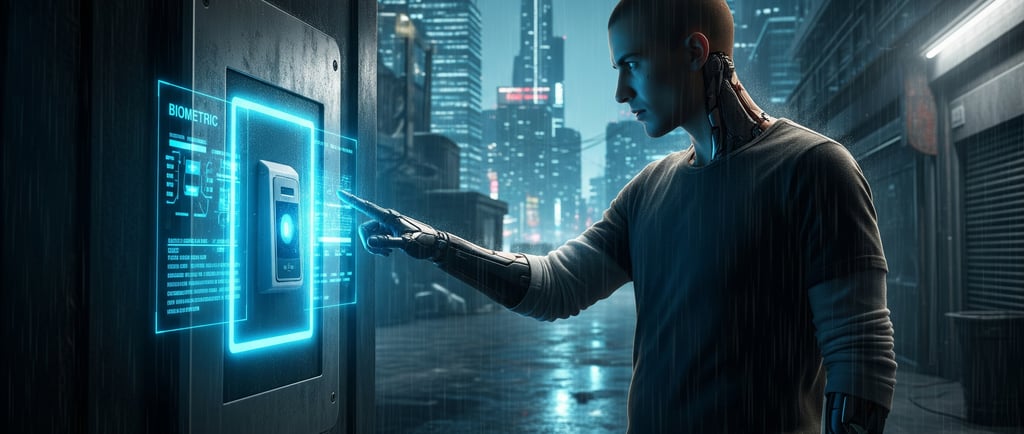Biometrics: Mine or Yours?
The truth about biometrics
CYBERSECURITY
Bryan Solidarios
7/24/20252 min read


The Shocking Truth: Who Really Owns Your Face and Fingerprints?
Ever thought about how often you use your face or fingerprints to unlock your phone, clock into work, or even breeze through airport security? These unique biological identifiers, known as biometrics, are incredibly convenient. But there's a flip side most folks don't realize.
What if I told you your face and fingerprints could be stolen, sold, tracked, and even used against you? Sounds like something out of a sci-fi movie, right? Unfortunately, it's a very real threat.
Biometrics: More Than Just a Key, They're Data Gold!
We're often told biometrics are super secure. And while they offer a quick way to verify identity, there's a crucial detail that's often left out: once your biometric data is leaked, you can't just change it like a password.
Think about it: if your password gets compromised, you create a new one. But you can't get a new face or a new set of fingerprints! This makes biometric data incredibly valuable to malicious actors.
Here's the eye-opening reality:
Hackers actively buy and sell stolen fingerprint data on the dark web.
Insurance companies have been known to track faces, sometimes for claims verification.
Governments can potentially misuse vast biometric databases, raising serious privacy concerns.
Most people using these systems have no idea how exposed they truly are.
The Unsettling Danger: You Can't Take Your Face Back
This is the scariest part: when a hacker successfully breaches your biometric data, the consequences are long-lasting and severe.
They could potentially:
Open new accounts in your name.
Track your movements without your knowledge.
Impersonate you for life, gaining access to your personal and financial information.
Your face and fingerprints are permanent. Once they're out there, stolen or compromised, they're gone forever.
Safeguarding Your Biometrics, Starting Today
Don't panic, but do be proactive! There are practical steps you can take right now to protect what's uniquely yours:
Limit sharing: Whenever possible, stick to traditional passwords or PINs instead of relying solely on biometrics for authentication.
Opt out where you can: If a system or app offers an option to avoid using biometrics for non-essential functions, choose to opt out.
Level up your 2FA: If you use two-factor authentication (2FA), great! But use authenticator apps (like Google Authenticator or Authy) rather than just your face or fingerprint, which might rely on a less secure system.
Request data deletion: If you stop using a service that collected your biometric data, contact them and formally request that they delete it from their systems.
Stay informed: Knowledge is power! Subscribe to reputable privacy newsletters or follow tech news outlets that cover data breaches. Knowing what's happening helps you react quickly.
Your digital identity, including your unique biometrics, deserves more than just blind trust in technology.
Don't Let Your Face Become Someone Else's Profit
Taking control of your biometric data is a crucial step in securing your overall digital presence. It's about empowering yourself without getting caught up in paranoia.
Want to learn more about protecting your data, devices, and future? Join our free privacy newsletter for straightforward, actionable tips.
For any concerns, suggestions, feedback, please contact us at support@bryansolidarios.com
© 2025. All rights reserved.
Subscribe here
AI Assistant
AI Content & Licensing Disclosure
All musical tracks and visual media under the "System Failure" project are created using a hybrid of human composition and Advanced Generative AI (Suno v5/v2026 & Image Generation).
Commercial Rights: All tracks hosted here are generated under an active commercial license.
Ownership Note: Per 2026 AI platform terms, while commercial use is granted to Bryan Solidarios, the copyright status of AI-generated outputs is subject to evolving international laws regarding non-human authorship.
Educational Purpose: This content is part of a cybersecurity awareness initiative to demonstrate the intersection of IT, AI, and digital security.